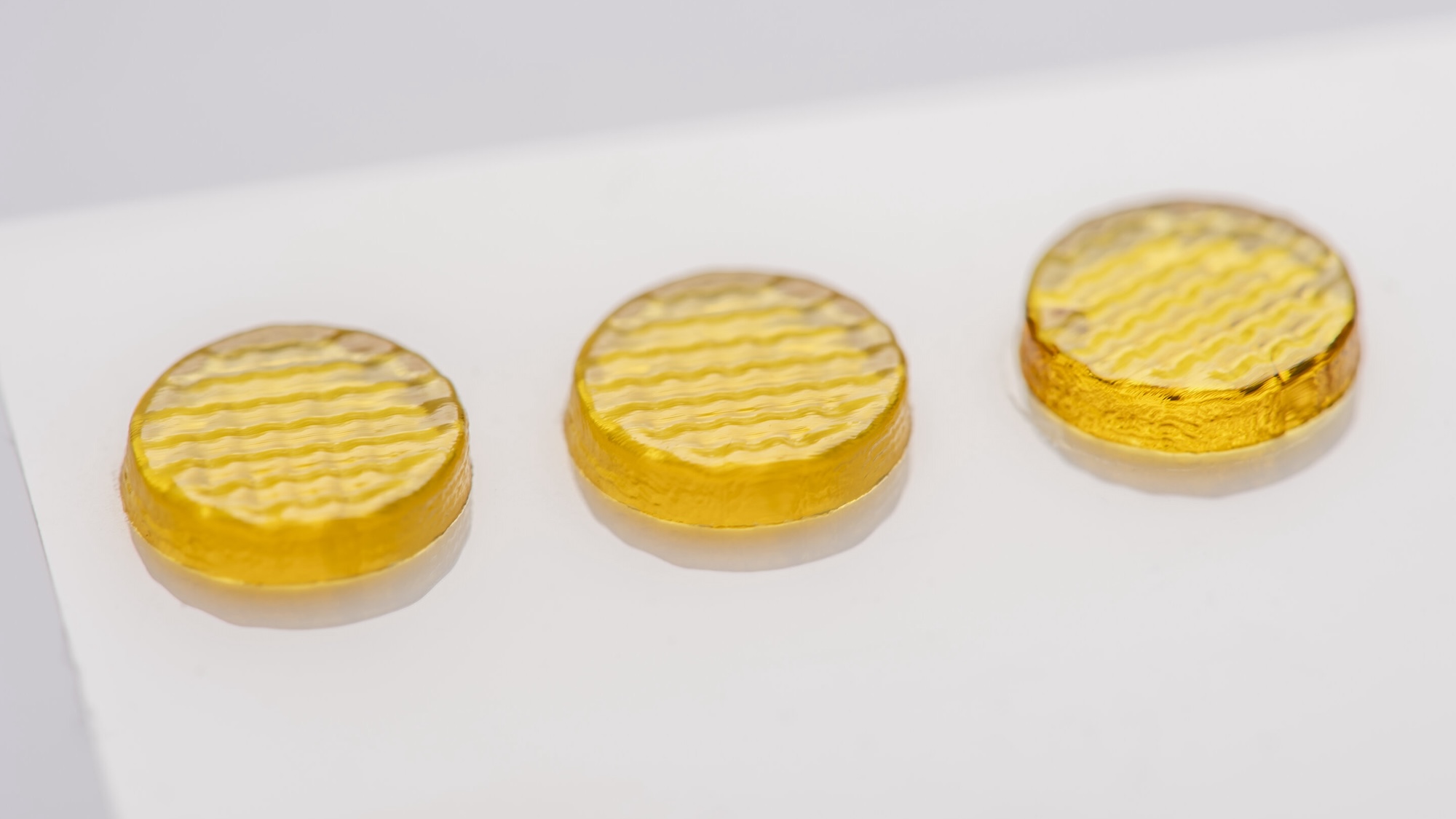

Remembering to take medication can be hard enough, but keeping up with multiple prescriptions, regimes, and dosages can be even more difficult. As many as one-third of all medication errors in US homes are the result of administration mistakes. But a team of researchers believes 3D-printed “polypills” could help kickstart a wave of “next-generation personalized medicines” and simplify medical routines.
According to a new study published in Materials Today Advances, manufacturing engineers and pharmacists at the UK’s University of Nottingham recently collaborated to 3D print edible tablets containing highly customized drug dosages and timing regimens.
[Related: 3D printers just got a big, eco-friendly upgrade (in the lab).]
Using what’s known as Multi-Material InkJet 3D Printing, the designers first developed a new ink with a molecular makeup that cures into water-soluble structures when exposed to ultraviolet light. After combining the ink with varying amounts of aspirin, the team designed customizable geometric patterns to fine-tune each tablet’s available surface area. This, alongside a tablet’s interior structure and shape, successfully controlled a given printed pill’s release rate and dosage amount. They then 3D printed 55 additional individualized pills in a single batch to showcase the method’s scalability and personalization.
In the study’s accompanying announcement, Yinfeng He, assistant professor of additive manufacturing and research lead, described their progress as “an exciting step” towards simplified, individualized medical care.
Although the first experiments only utilized aspirin, researchers see no reason why future designs won’t incorporate additional drugs, regardless of dosage and timing. In doing so, the group asserts that these new “polypills” would simplify an entire day’s worth of medications into a single tablet.
According to engineering professor and study co-author Ricky Wildman, further testing will expand their range of available materials and usable prescription medications. “The ongoing research aims to refine these aspects, enhancing the feasibility of [3D printing] for widespread application,” he said.
Researchers think the new method could be specifically helpful in crafting medication to help treat diseases requiring the release of multiple drugs at different times.
“The future of prescribed medication lies in a personalized approach,” pharmacy professor and study co-author Felicity Rose explained in the accompanying announcement. Citing the estimate that as many as half of all UK residents don’t correctly adhere to their medicine regimens, Rose added, “A single pill approach would simplify taking multiple medications at different times and this research is an exciting step towards that.”
